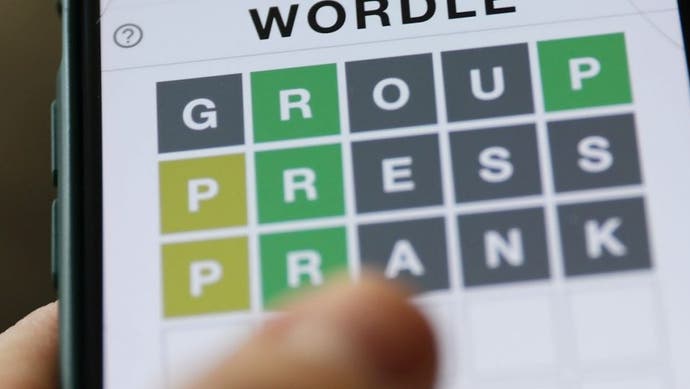This week, Wordle featured a different word for two groups of users
NYT cool.
One of Wordle's joys is the fact everyone everywhere is guessing the same daily word. It keeps the game as a water-cooler (or passive agressive Twitter) discussion point, and ensures everyone's precious play streaks sit on the same level playing field.
On Monday, however - Valentine's Day - Wordle's word for the day was different for the first time. Some Wordle players saw AROMA, but others had AGORA instead.
Why the difference? The reason behind it is partly a quirk of how people play - but mainly because of Wordle's new owner, the New York Times. In a statement to ABC News, it admitted it had been fiddling around with the game's word list behind the scenes.
Simply put, AGORA was removed from the current New York Times Wordle word list for being too "obscure". (If you didn't know, an agora is a Greek market square.)
Do you load up Wordle every day? Or do you simply have it open in a tab you refer back to when its latest puzzle arrives? This will likely answer which word you got.
Those who got AGORA were people who had not manually refreshed the Wordle page, and so got Monday's word as it would have been. Those with AROMA instead were likely playing on a browser which had been refreshed more recently, with the New York Times' updated word list.
We already knew that New York Times had removed some offensive words as potential puzzle guesses, but not that it was also choosing to trim down other unusual words.
ABC News reporter Michael Slezak posted a statement from the New York Times via Twitter, which stated:
"We are updating the word list over time to remove obscure words to keep the puzzle accessible to more people, as well as insensitive or offensive words. AGORA is an example of an obscure word.
"Solvers on the old word list can likely update to the new list by refreshing their browsers."
Per Twitter user DJDellsperger, other potential answers removed by New York Times include "pupal", "lynch", "fibre", "slave" and "wench".
Did New York Times look ahead to see Monday's answer was AGORA and decide it was too difficult - and then swap it for AROMA instead? Or was it simply chance that one of the removed words happened to come up as an answer this week? The publication has not said.
Perhaps most importantly, if New York Times was removing obscure words, how did it still allow today's?!













